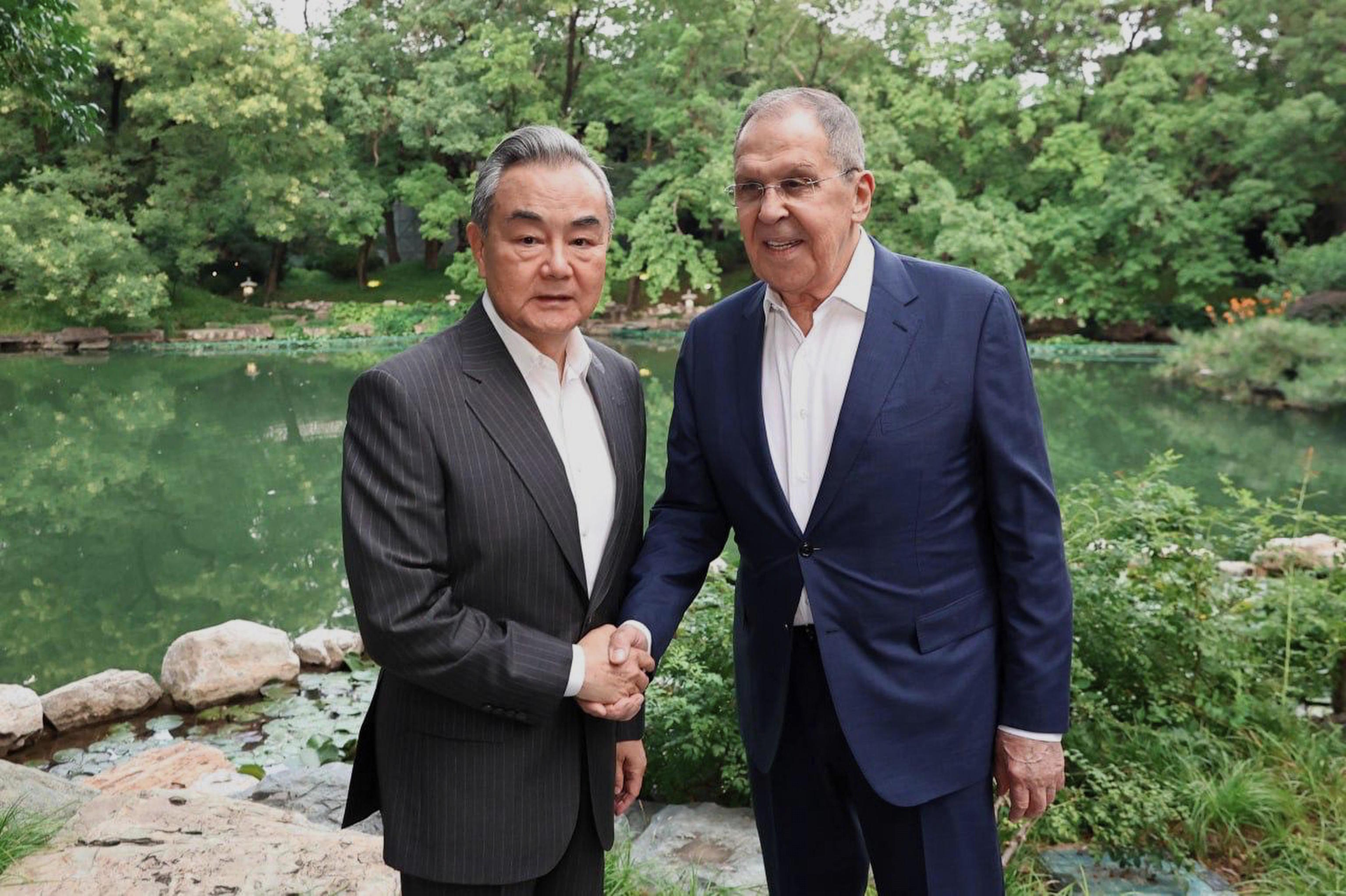The foreign ministers of Russia and China have met twice in just three days. The first meeting was on Friday in Kuala Lumpur, Malaysia, where both were engaged in a series of bilateral meetings at a regional summit held by Southeast Asian nations. Russian Sergei Lavrov chatted with China's Wang Yi after a face-to-face with US Secretary of State, Marco Rubio. All this while a frustrated Donald Trump was toughening his stance against Vladimir Putin due to the little success of his pressures to end the war in Ukraine.
After Malaysia, Lavrov traveled to North Korea for a quick visit to the mega-resort where Kim Jong-un spends his holidays and, taking advantage, to hear once again from the North Korean dictator words that are well received in Moscow: that Pyongyang will continue to provide "unconditional support" to Putin's regime. In other words, more troops and weaponry for Putin's war against Kiev.
After a quick handshake with Kim, Lavrov's Asian tour took him on Saturday night to Beijing. This time for a longer stop because in the city of Tianjin, 30 minutes by train from the Chinese capital, a summit of Foreign Ministers of the countries that make up the Shanghai Cooperation Organization (SCO) is taking place this week, a group that China has long been trying to present as a counterbalance to Western-led blocs.
Prior to the group meeting, Lavrov wanted to once again be in the spotlight accompanied only by his Chinese counterpart. They took off their ties to pose for a photo while having tea in the idyllic gardens of the Diaoyutai State Guesthouse, where many international leaders visiting Beijing pass through. An encounter that practically coincided with Trump's announcement that he will send Patriot air defense systems to Ukraine.
"Putin really surprised a lot of people. He speaks kindly and then bombs everyone at night," the Republican quipped while in Beijing, Lavrov and Wang reaffirmed the "depth and uniqueness" of the "strategic ties" between their countries. "China and Russia represent the most stable, mature, and strategically significant relationship between major countries in the world today, and both parties consistently view and advance cooperation in all domains from a historical, strategic, and long-term perspective," Wang stated.
Chinese media have reported that the ministers also discussed Putin's upcoming visit to Beijing, which will take place in the first week of September to participate in a summit of SCO leaders and attend a military parade in the Chinese capital commemorating the 80th anniversary of China's victory in its war of resistance against Japanese aggression.
According to the Russian Ministry of Foreign Affairs, Wang and Lavrov also addressed relations with the United States and the war in Ukraine. Earlier this month, Beijing's position in the conflict made headlines after Wang, during a meeting in Brussels with the EU's foreign policy chief, Kaja Kallas, acknowledged for the first time that China cannot afford for Russia to lose the war against Ukraine because it fears that the US will forget about Putin and go all out against the Asian giant.
On Tuesday, Lavrov and Wang will also meet in Tianjin with their counterparts from the SCO Central Asian countries, as well as from Iran, India, and Pakistan. At the end of June, when the conflict escalation in the Middle East was very hot after the attacks by Israel and the US on Iran, the Defense Ministers of this group held another ministerial summit in another Chinese city, Qingdao.
The SCO was formalized in 2001 to resolve the border disputes left in Central Asia by the dissolution of the Soviet Union. Later, the group evolved into a regional economic forum under China's leadership. In recent years, Beijing and Moscow have tried to promote the grouping, which represents over 40% of the world's population, in what some US-linked think tanks said was a kind of "anti-NATO".
